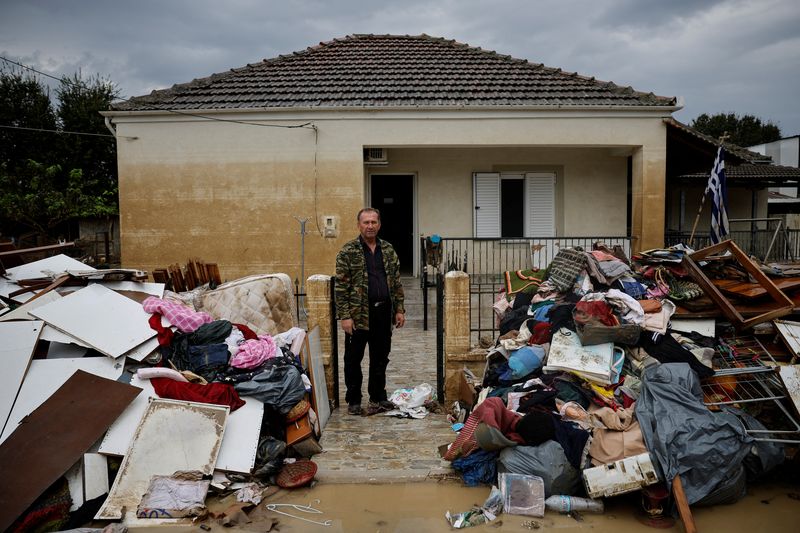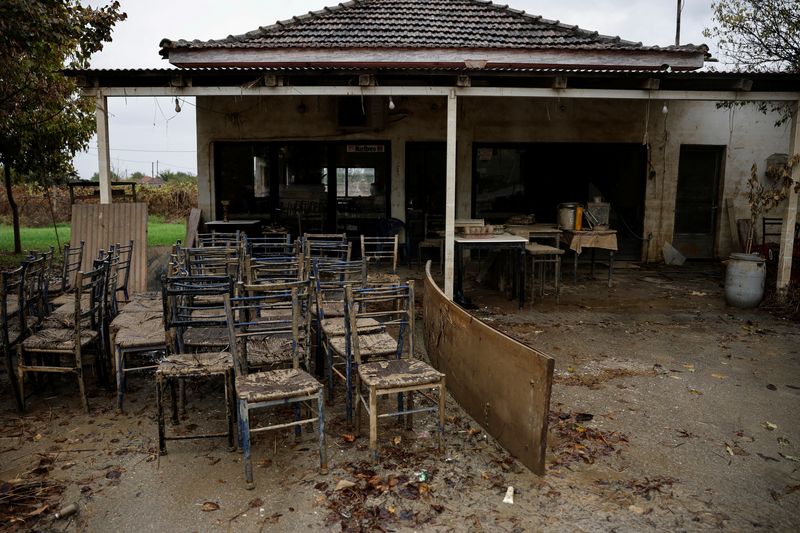ATHENS (Reuters) - In the mud and debris of the flooded village of Metamorfosi in central Greece, 60-year-old farmer Athanasios Kostis is throwing out the memories of a lifetime.
"All my memories are here. Now it is all totally destroyed. We have thrown out everything away," Kostis told Reuters.
Storm Daniel, Greece's most intense since records began in 1930, swept through Thessaly for three days this month, killing 16 people - among them two from Metamorfosi - flooding cities and villages and turning the region into an inland sea.
Hundreds of residents were airlifted or pulled out of flooded homes in lifeboats, crops were washed away and tens of thousands of animals drowned.
Weeks later, the water has turned into mud, revealing the devastation in villages such as Metamorfosi, which had nearly disappeared beneath the water.
Like Kostis, the more than 300 residents of the village are primarily farmers occupied mainly with cotton cultivation, as well as some corn and livestock.
Most of them have found shelter in relatives' homes or by renting accommodation in nearby villages that did not flood.
"Now, no one lives in the village. Everyone has left. They all come during the day, they clean, they throw things away, they wash the houses, and then they leave again," Kostis said.
In the empty streets of Metamorfosi, which in Greek means transfiguration, piles of residents' belongings, framed paintings, furniture, blankets and carpets, are the only spot of colour in the mud.
The cemetery and buildings including the Church of the Transfiguration of Sotiros, a religious site visited by thousands of pilgrims each year, have suffered heavy damage.
The storm's impact on Metamorfosi was so emblematic of the devastation that Prime Minister Kyriakos Mitsotakis showed pictures of the submerged village when he met EU Commission President Ursula von der Leyen on Sept. 12 to request more aid from the European Union.
Kostis said the village had been hit by a flood in 1994, but then residents had been able to return three months later. This time, it might take longer, he said.

"With 4 metres of water, it will be a bit difficult to come back until spring,” he said.
(This story has been corrected to fix the title to EU Commission president in paragraph 11)
